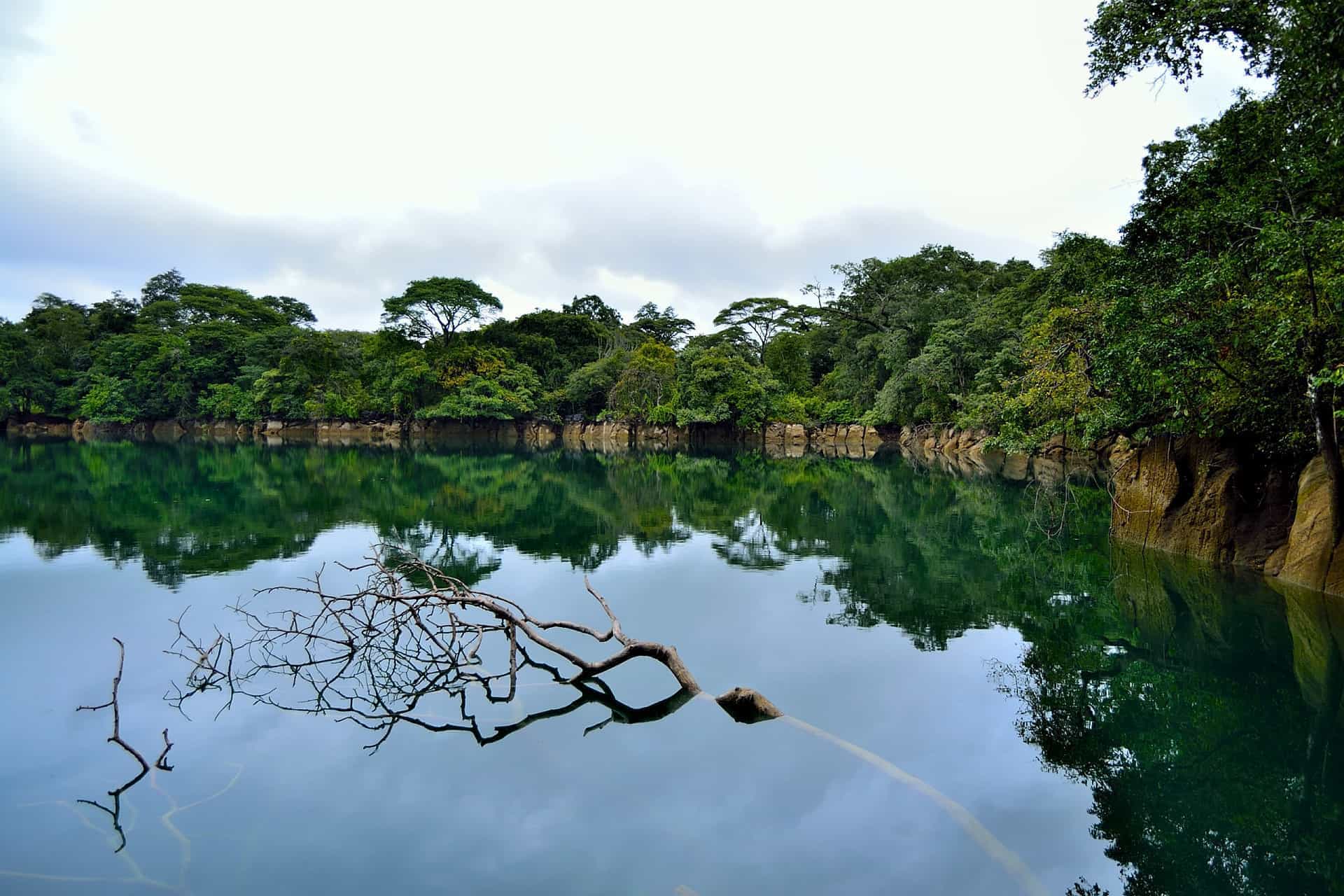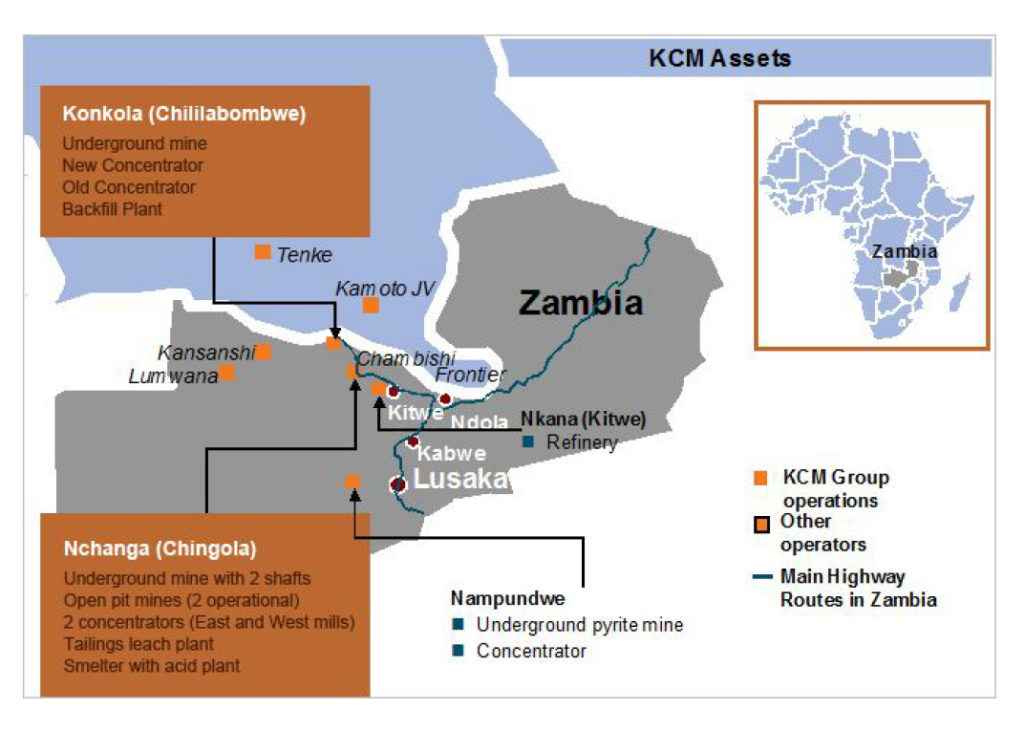
In 2014, copper worth billions of dollars seems to have disappeared on its way from Zambia to Switzerland. A first glance at trade statistics from Trade Map shows that ‘copper and articles thereof’ valued at USD 4.2 billion were exported to Zambia’s largest export market for copper, Switzerland. But the same database shows that Switzerland did not import any ‘copper and articles thereof’ at all from Zambia in 2014.
It never went to Switzerland, says Dr. Andreas Missbach, head of the Commodities, Trade and Finance Department, Berne Declaration. “Switzerland appears in Zambian statistics of copper exports because a multinational Swiss-based company exports a lot of that copper. But it is not going physically to Switzerland. The business model of commodity traders is called ‘transit trade’, since the products never reach Switzerland. They are going directly to end users everywhere.”
This is confirmed by Nkula Edward Goma, a former programme officer at Center for Trade Policy in Zambia and from one of the CSO’s, who raised the case against Glencore. This article looks into the various trade and tax schemes that multinational mining companies use in order to lower their tax rates and increase their profits from extracting resources in Zambia; these practices have demonstrated long-term impacts, including illicit cash flows out of the country at the expense of the Zambian people and of their basic human rights.
Discrepancies in trade data show up for many reasons – countries may use different valuation methods or different types of trade recording systems – but the fact that the discrepancies are so large that Switzerland’s import of copper from Zambia does not even appear in trade statistics is an indicator that transfer mispricing is going on, said two researchers, Mwanda Phiri and Shebo Nalishebo from the Zambia Institute for Policy Analysis and Research, in the Zambia Daily Mail, March 2015.
Transfer pricing happens whenever two companies from the same multinational group trade with each other, establishing a price for the transaction; this is not illegal. Transfer mis-pricing, or re-invoicing, happens when goods leave the exporting country under one invoice, and the invoice is re-directed to the purchaser’s subsidiary in another country (usually a tax haven), where the price is altered. The revised invoice is then sent to the purchaser in the importing country for payment. This allows a multinational company to shift profits to subsidiaries located in countries with lower tax rates, thereby increasing the company’s overall profits; this practice is considered abusive and illegal.
Transfer mispricing accounted for 80 percent of illicit financial flows out of developing countries over the last decade, which translates to an estimated USD 4.688 trillion of estimated USD 5.86 trillion in total illicit financial flows, according to IBAHRI. The phenomenon appears to be widespread, since the majority of global trade happens across borders, but within multinational companies. One example comes from a report leaked from auditing firm Grant Thornton in 2012 that found evidence that Glencore International was transferring profits to Switzerland, where the company would pay a lower tax rate, in violation of OECD guidelines.
According to the NGO Action Aid, the company’s tax practises cost the Zambian government as much as £76 million per year in lost corporate taxes. Grant Thornton never confirmed the report, and the case against Glencore was settled with OECD’s National Contact Point in Switzerland. Glencore said all transactions were conducted on an arm’s-length basis and at internationally agreed prices. Eventually, the case was dismissed. Transfer pricing is among the greatest tax abuses in developing countries,
according to IBAHRI. Other abuses include the negotiation of tax holidays and incentives; the taxation of natural resources; and the use of offshore investment accounts.
“Secrecy jurisdictions are also a concern because of their role in facilitating tax abuses. International standards that promote greater transparency and more effective exchange of information for tax purposes need to be further developed,” the IBAHRI report states.
Zambia is the second-biggest producer of copper in Africa, and the seventh largest in the world, according to World Copper Factbook; it is the eighth largest according to the US Geological Survey 2014. This landlocked country in the southern part of Africa has abundant natural resources, including cobalt, zinc, uranium and gemstones, yet it remains one of the poorest countries in the world.

Copper is Zambia’s leading industry. It accounts for more than 70 percent of Zambia’s export earnings and 12 percent of government revenue. Zambia produced more than 700,000 metric tons of copper in 2014, and is on track to do so again in 2015, said the Minister of Mines, Energy and Water Development in Zambia, Christopher Yaluma, to Bloomberg in June. Despite Zambia’s valuable resources, according to the World Bank, 60 percent of Zambians live in poverty and 42 percent in extreme poverty, living on less than USD 1.25 per day. Transfer mispricing is the main reason for this. Between 1970 and 2010, illicit cash flows due to transfer mispricing amounted to an estimated a loss to the country of USD 17.3 billion (in 2010 prices), according to a 2013 UN paper on Zambian mineral extraction, “Capturing Mineral Revenues in Zambia.”
Tax abuse has considerable negative impacts on human rights, because it deprives governments of the resources required both to offer programmes that support economic, social and cultural rights, and to create and strengthen the institutions that uphold civil and political rights, suggests the International Bar Association’s Human Rights Institute (IBAHRI). Simply put, tax abuse hinders development and is therefore a violation of several human rights. The UN Special Rapporteur on Extreme Poverty and Human Rights has illustrated how poverty is connected, whether as cause or consequence, to violations of fourteen different human rights, including the rights to food, to health, to education, to social security, and to the principle of transparency.
In Zambia, this is indeed the case. The country is far from reaching the UN’s Millennium Development Goals, which include reducing poverty and maternal mortality, preventing new HIV infections, and ensuring that children complete secondary school. These are all indicators that progress and human development are happening way too slowly in a country with enormous underground resources.
The Zambian state has the responsibility to protect its citizens’ human rights, and the mining companies have the responsibility to respect human rights, according to the UN Guiding Principles on Business and Human Rights.
Zambia is the 13th largest producer of copper in the world
World total (rounded)
To begin with the latter, companies must have appropriate policies and due diligence procedures in place to ensure that their activities do not have negative impacts on human rights. This means that multinational enterprises, as well as their advisers and financiers, should acknowledge and act to redress the ways that their tax planning strategies can negatively impact human rights. Since the negative impacts that tax abuse has on poverty and human rights are so severe, the state has a number of obligations to counter tax abuse, according to the IBAHRI report “Tax Abuses, Poverty and Human Rights” (2013), which states:
“These flow from the state’s obligation to use the maximum available resources to progressively realise human rights including the obligation to confront tax abuses as part of an overall plan to strengthen financial and tax governance. Furthermore, states have the obligation to ensure coherence between corporate, fiscal, tax and human rights laws and policies, both at the domestic and international levels.
This includes the corollary obligations to avoid corporate, fiscal or tax measures that have retrogressive impacts on human rights. The obligation to do no harm with respect to economic, social and cultural rights should be understood to include an obligation for states to assess and address the domestic and international impacts of corporate, fiscal and tax policies on human rights.”
Indeed, the UN’s Guiding Principles on Business and Human Rights imply access to remedy provided by the state. The ‘Access to Remedy’ principles focus on ensuring that where people are harmed by business activities, there is both adequate accountability and effective redress, both judicial and non-judicial.
In the case of the Zambian state, this translates into not only strengthening fiscal and tax governance and enforcement capacity, but also ensuring transparency and access to information. Danwatch has tried to contact the Zambian Revenue Authority for comment by email, but there has been no response.